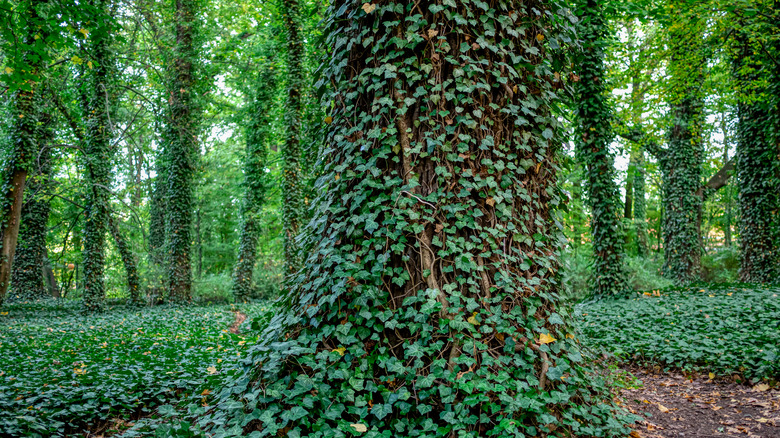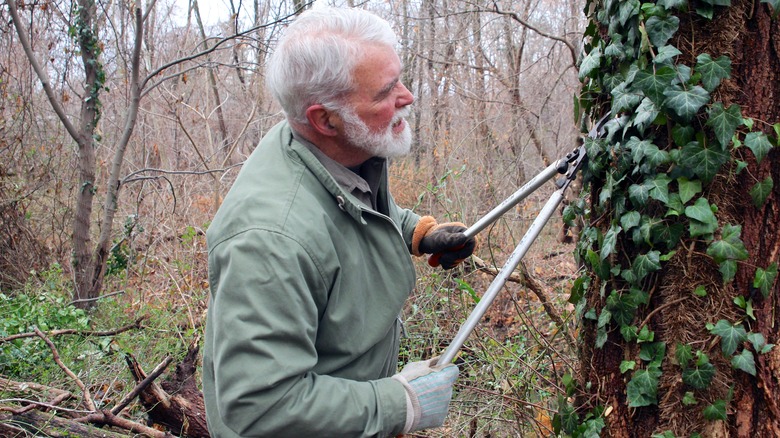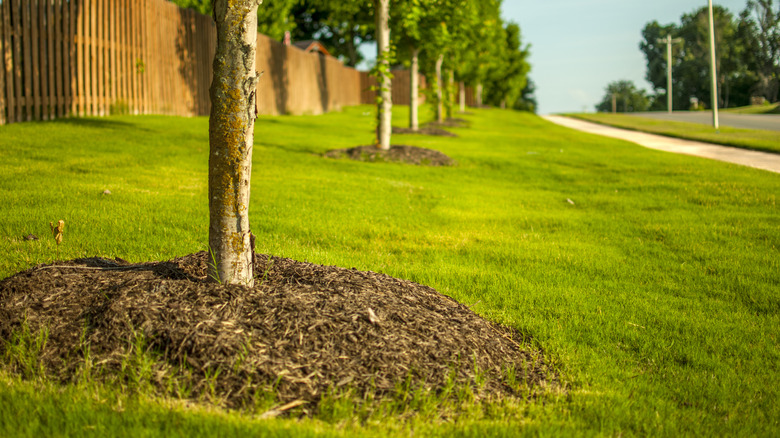The Best Method For Removing Invasive Vines From Your Tree
Even though green ivy climbing up your tree can look visually appealing, invasive vines are not so great for your tree's health and can cause damage. As vines expand and grow, they can strangle your tree, block it from receiving crucial sunlight, and hurt your tree's root systems by trapping moisture. If left untreated, the structure of your tree can become compromised, posing a higher risk of it falling over. Cracks in the trunk or unhealthy bark are signs you need to call a tree service.
If you see vines on your tree, it is important to take action right away. The best and safest method of removal is to cut the stem of each vine from around the base of the tree instead of attempting to pull the vines from far-reaching branches and higher parts of the tree trunk. Pulling the ivy ropes out of the ground from around the tree's trunk will ensure all of the ivy vines will stop receiving nutrients from the soil so they will eventually die.
Strategically removing vines will cut off their nutrient supply
A common strategy is called the "window method" which focuses on cutting the ivy ropes on your tree at about shoulder height and at the tree's base. After cutting the vines, you can remove them from the cut space. If the ivy does not fall off the tree with a gentle tug, it is best to leave it. Pulling a vine that's tightly wrapped around branches or parts of the trunk can damage tree limbs and tree bark.
The tools you will need will vary based on how heavily your tree is infested. If the vines are thicker than an inch, a small handsaw is recommended. If the ivy is not so dense, hand pruners or garden clippers should handle the job. It is recommended to make sure your skin is covered by wearing gloves and a long-sleeved shirt. Keep in mind that some vines can cause severe skin reactions.
Remove invasive vines around the base of the tree to keep them from growing back
To prevent ivy from growing back, make sure the area surrounding your tree is clear of vines. Beyond pulling all ivy vines out of the ground around the base of the tree, arborists recommend clearing all ivy within a two-foot radius around the tree, which will protect it from future infestations. A good strategy is to plan your work right after a good rainstorm when the ground is moist. Ivy roots easily come to the surface, and you can pull them from the soil at the bottom of the tree with your hands and without any tools.
After removing the ivy from the ground, spread leaf or wood chip mulch three feet around the tree at about two inches deep. There are many reasons why you should be mulching around your trees — in this case, the organic material will help protect the tree roots and preserve moisture.
There are numerous species of invasive vines you should know about before handling them, and it is a good idea to identify which species you're dealing with before beginning the removal process, but a good rule of thumb is to keep all climbing vines off your trees to keep them healthy and thriving.


